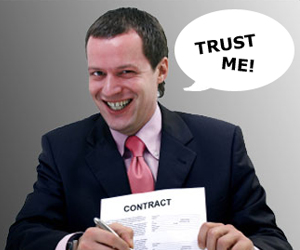Timeshare presentations have gained a notorious reputation for their high-pressure sales tactics and manipulative techniques. In this article, we will explore the world of timeshare presentations and the tactics employed by sales representatives to persuade potential buyers. Understanding these tactics can help consumers make more informed decisions when attending timeshare sales pitches.
1. The “90-Minute” Promise
Many timeshare presentations promise to be a quick 90-minute affair. However, these presentations often extend well beyond the promised timeframe, putting pressure on attendees to make a decision.
2. Freebies and Incentives
Timeshare companies often offer freebies, such as meals, show tickets, or other incentives, to encourage attendance. These inducements create a sense of obligation to listen to the sales pitch.
3. Emotional Manipulation
Sales representatives may use emotional tactics to create a sense of urgency or a fear of missing out. They may appeal to the desire for family togetherness, dream vacations, or future security.
4. Complex Jargon and Information Overload
During the presentation, sales reps may inundate attendees with complex terminology, making it difficult for them to fully understand the contract and its implications. This information overload can pressure attendees into hasty decisions.
5. Isolation from the Group
To close deals, sales representatives may attempt to isolate attendees from the larger group, making it more challenging for them to consult with family or friends.
6. Relentless Pressure and Multiple Representatives
It’s not uncommon for multiple representatives to tag-team attendees, creating an environment of relentless pressure and persuasion.
7. Urgent Price Drops
Sales reps may suggest that the presented offer is only available during the presentation and that prices will increase if attendees don’t buy immediately.
8. Downplaying Risks and Hidden Costs
Sales representatives often downplay the risks, maintenance fees, and hidden costs associated with timeshare ownership. This can lead attendees to underestimate the true financial commitment.
9. No “No” Policy
Sales reps may employ a “no ‘no'” policy, meaning they won’t accept “no” as an answer. They will persistently push attendees to consider the purchase.
10. The Exit Process Is Ignored
Sales reps often avoid discussing the exit process or the complexities of exiting a timeshare contract. This lack of transparency can lead attendees to believe that exiting is straightforward.
Protecting Yourself during Timeshare Presentations
To protect yourself during timeshare presentations, consider these steps:
a. Set a Time Limit: Before attending, inform the sales representative that you’ll only spend the specified time, and stick to it.
b. Don’t Make Impulsive Decisions: Refrain from making decisions during the presentation. Take time to think it over and consult with family or friends.
c. Ask for Everything in Writing: Request all promises, terms, and conditions in writing to avoid misunderstandings.
d. Research and Due Diligence: Research the company, read reviews, and be aware of the potential risks and costs of timeshare ownership.
e. Consult an Attorney: Consider consulting with a timeshare attorney to review the contract and provide legal advice.
Conclusion
Timeshare presentations are known for their high-pressure sales tactics and manipulative techniques. Attendees are often subjected to emotional manipulation, information overload, and relentless pressure to make a purchase. To protect yourself during timeshare presentations, set time limits, avoid impulsive decisions, ask for everything in writing, conduct research, and consider consulting with a timeshare attorney. By being informed and vigilant, you can navigate timeshare presentations with greater confidence and make decisions that align with your best interests.



